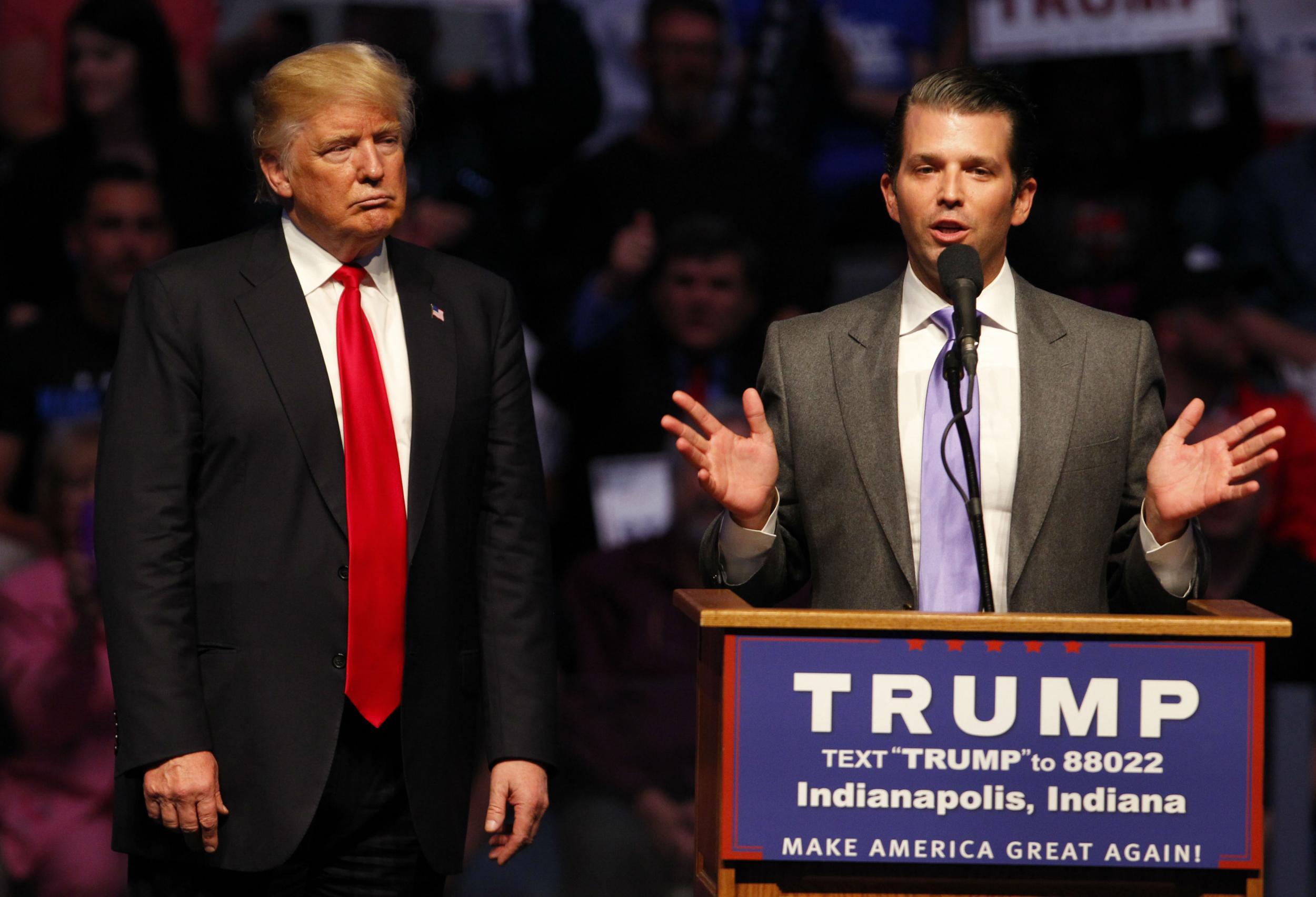Donald Trump Jr's Russia ties lay the groundwork for a conspiracy case
President's son's meeting with a Kremlin-linked lawyer isn’t proof of electoral fraud, but it's a start

The news about Donald Trump Jr's meeting with a Kremlin-connected Russian lawyer is a significant development in the investigation of possible collusion between the Trump campaign and Russian nationals.
Of course, a single meeting, by itself, is not a crime. Much more remains to be learned, including what was actually said during this and other meetings and whether any agreements were made. But prosecutors in the office of special counsel Robert S. Mueller III are no doubt extremely interested in what happened that day in June 2016 at Trump Tower.
The president's son said he agreed to meet the lawyer, Natalia Veselnitskaya, after being told she was offering damaging information about presumptive Democratic presidential nominee Hillary Clinton. The President's son-in-law, Jared Kushner, and campaign chairman at the time, Paul Manafort, also attended the meeting, which took place shortly after Trump clinched the Republican nomination.
Collusion is usually defined as a secret agreement to do something improper. In the criminal-law world, we call that conspiracy. If unlawful collusion between the Trump campaign and Russian nationals did take place, criminal conspiracy would be one of the most likely charges.
A conspiracy is a partnership in crime. The federal conspiracy statute prohibits conspiracies to defraud the United States, which includes conspiracies to impede the lawful functions of the federal government - such as administering a presidential election.
Conspiracy also prohibits agreements to commit another federal crime. This would include an agreement to violate the laws against hacking into someone else's computer, or to violate federal election laws.
Conspiracies, by their nature, take place in secret. To break through that secrecy, prosecutors often rely on circumstantial evidence. The classic trial lawyer's metaphor is that each such piece of evidence is a brick. No single event standing alone may prove the case. But when assembled together, those individual bricks may build a wall - a big, beautiful wall - that excludes any reasonable doubt about what happened.
That's why this latest news is a big deal. The meeting helps establish a few critical facts. The first is simply that contacts between Russians and campaign officials did take place. If you are seeking to prove a criminal partnership, evidence that the alleged partners had private meetings establishes the opportunity to reach an agreement.
Of course, there already was evidence of other meetings between Russian officials and members of the Trump campaign. The crucial new detail about this meeting is that campaign members now admit it took place after they were told that Veselnitskaya was offering compromising information about Clinton.
This fact is significant regardless of what happened at the meeting. Proving a defendant's state of mind is key in any criminal case. This meeting provides critical evidence about the state of mind of Trump representatives: They were willing to hear what a Russian individual had to offer about their opponent.
The first line of defence against a conspiracy allegation typically would be: “That's ridiculous - I'd never agree to meet with someone from Russia under those circumstances.” That line of defence appears to be gone. Members of the Trump campaign didn't call the FBI to report a Russian national's offer to dish dirt about the former US Secretary of State - they took the meeting.
A prosecutor investigating a potential conspiracy also would be intrigued by the way information about meetings between Russians and the Trump campaign has been trickling out. Over the past few months, several members of the Trump team have admitted to meetings and conversations with Russian officials after initially denying that any such contacts took place. In just the past few days, Trump Jr and administration officials have offered differing accounts of the meeting with Veselnitskaya.
Lies or conflicting explanations can be important circumstantial evidence of criminal intent. They may indicate that the truth is something more nefarious that someone does not want to be discovered.
It's true that innocent people can make mistakes or forget about meetings. But it's also true that guilty people often lie and seek to cover up their actions.
Prosecutors in the special counsel's office have powerful investigative tools at their disposal. Through the grand jury they can compel testimony under oath from the key actors. Through granting immunity or reaching plea agreements they may obtain the cooperation of individuals involved in any criminal wrongdoing. They undoubtedly know much more about this meeting than has so far been revealed in the press.
A great deal of investigating remains to be done. But in the context of everything else that has been learned over the past few months, the news about this meeting is far from the “nothing burger” described by White House Chief of Staff Reince Priebus. We know now that Trump campaign officials were, at the very least, willing to entertain the idea of accepting help from Russian nationals in a US presidential election.
That's far from proof of a criminal conspiracy. But for prosecutors trying to build that wall of circumstantial evidence, it provides a pretty solid foundation.
The Washington Post
Join our commenting forum
Join thought-provoking conversations, follow other Independent readers and see their replies
Comments